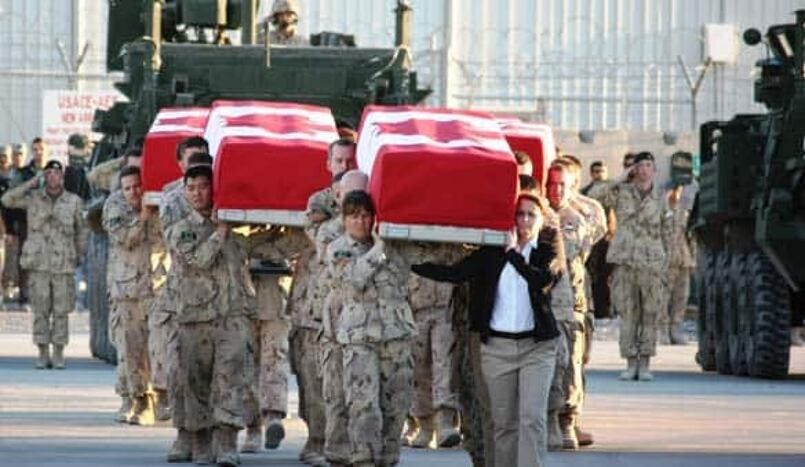What Canadian Power Felt Like in Kandahar
Canada knows how to shape geopolitical outcomes - and what price that can entail
It may have been years that Canada has been punching below our weight in world affairs. But not that many years. The memories of wielding it have not dimmed
In September 2009, I arrived at Kandahar Airfield as the newly-appointed Representative of Canada in Kandahar. What I saw for the year I led the government of Canada’s operations in that province set my expectations for what Canada is capable of.
In those years, Afghanistan was the highest profile international conflict, the epicentre of geopolitical attention. The War on Terror had raged for 8 years, triggered by terrorists who had trained and organized in the mountains of Kandahar before killing 2,977 people in the attacks of 9/11. NATO’s attempts to rebuild Afghanistan after the rapid decapitation of the Taliban government were beginning to falter.
Nowhere was the rising violence more prevalent than in Kandahar, the Taliban’s home territory. While many Canadians thought the decision crazy, Canada volunteered to take primary responsibility for that province three years earlier. By the time I arrived we had more than 4000 soldiers deployed, our largest engagement in combat since the Korean war.
The Canadian Forces fanned out across Forward Operating Bases in the most remote corners of the province, taking casualties every month as they helped stand up an Afghan National Army that could resist the Taliban.
Among the members of our large civilian team deployed into the heart of the combat, Dozens of civilian police officers from across Canada trained the Afghan National Police. Aid workers ran teams rebuilding irrigation canals, training an entirely new generation of teachers and doctors to create the minimal conditions of a functioning society for Kandaharis to replace the chaos that decades of warlord rivalries had wrought. We even sent Canadian wardens to help set up and run the prisons, working day in and day out at a prison that became infamous for suicide bombs that preceded mass escapes. This was dangerous work.
We held our ground in Kandahar for six long, bloody years. By the time we left 158 Canadian soldiers were dead, and more than that number would eventually take their own lives due to PTSD. Add to that one of my own colleagues killed and four wounded, and many of our Afghan government partners - assassinated just for working with us.
What did that huge investment of Canadian lives get us? Two things.
First, it gave us a place in the room when key decisions were made. The key strategic debates the international community made about Afghanistan were made before weekly meetings with President Hamid Karzai. These were led by the four-star American general leading the NATO mission, the head of the UN mission and three ambassadors: the U.S., the UK - and Canada. The size of our military and aid contributions to Afghanistan earned us a seat when the French, Italians, Indians and others were excluded.
When the international community made decisions about how to prosecute the war against the Taliban, Canada was at the table. When we confronted the awkward reality that Afghan prison guards were torturing Taliban soldiers we had detained on the battlefield, Canada was there to propose a solution. When the awful reality of Karzai’s deep corruption hit home, we were part of the discussion about reining in the theft his henchmen were committing.
The critical decision in 2009 concerned the Karzai government plans to steal the Presidential election that year, using the violence in provinces like Kandahar to justify direct control over ballot boxes they were clearly going to stuff with votes for Karzai.
So what did power mean in that context? It meant being in the room when it happens.
Second, it meant paying the price when the wrong decisions were taken. Canada and our NATO allies did not block the Karzai government from stealing the election, in the end. He concluded that we needed him more than he needs us, given our burning impatience to withdraw from Afghanistan as soon as possible. While we had challenged the Karzai government on corruption, on torture in prisons, and a host of other abuses, we did not block their plans to stuff ballot boxes.
Six months later, a convoy of Canadian Forces armoured vehicles drove from our base in downtown Kandahar to a neighbouring district, when they ran over a culvert hiding a 110 kg bomb. The detonation threw one armoured vehicle 50 metres in the air before landing back on the ground. The impact killed four soldiers and a Calgary Herald journalist, and gravely wounded a diplomat and four other soldiers.
The Taliban likely concluded Canada was the reason the Karzai government could steal an election, and the wealth of an entire province, and get away with it. We were targeted because we supported a government the people of Kandahar detested.
Having power on the scale Canada exercised in Kandahar means paying the price for our decisions.
No wonder some Canadians prefer to pretend that we don’t have power. It would be easier to avoid the difficult decisions that come with it.
But I saw it with my own eyes in Kandahar. We did exercise power, on a large scale, in the most dangerous environment in the world. We carty the regrets of our decisions to this day.
Caption: Ramp ceremony for the Private Chidley, Corporal McCormack, Sergeant Miok, Sergeant Taylor and Michelle Lang, killed in action December 30, 2009.


